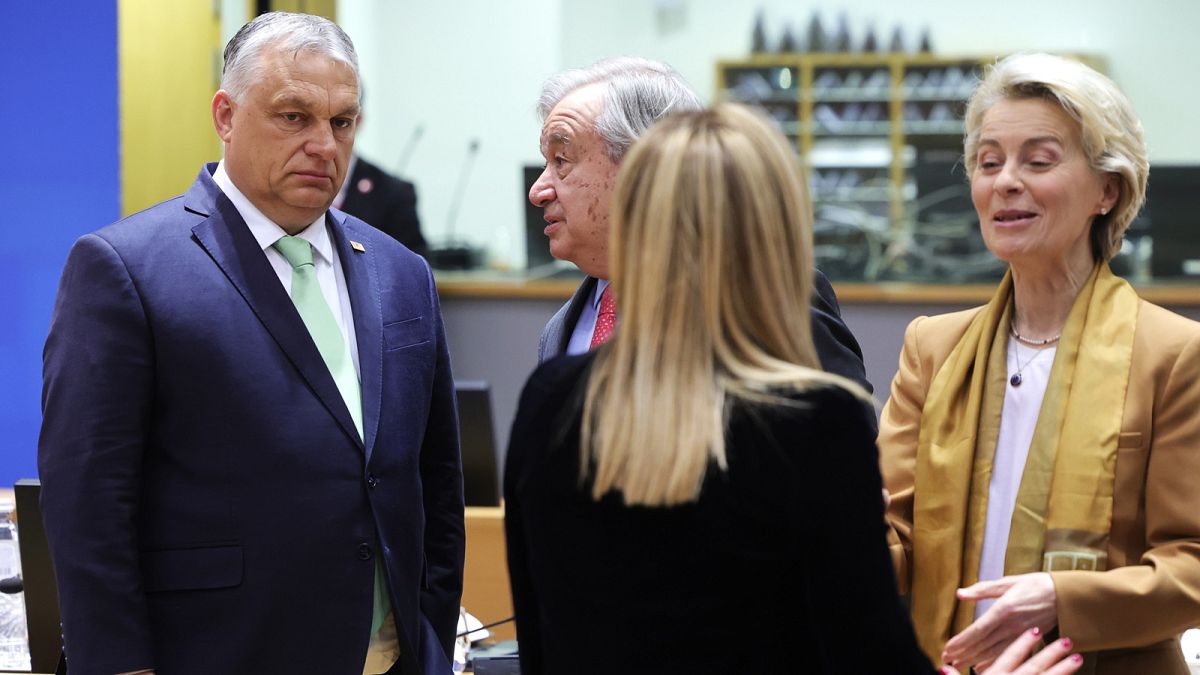Official reactions are pouring in after home affairs ministers struck a major deal to revamp the European Union's migration and asylum policy.
Ursula von der Leyen, who, upon becoming president of the European Commission, made the overhaul one of her top priorities, called the agreement a "huge milestone."
"Migration is a European challenge," von der Leyen said in a tweet. "Working together, we can achieve a common solution."
Charles Michel, president of the European Council, an institution that has witnessed countless debates on migration over the past years, most of which were as polarising as they were fruitless, said the deal represented "truly a big step."
Von der Leyen and Michel sent their personal congratulations to Ylva Johansson, the European Commissioner for home affairs, for her perseverance and hard work.
In her capacity, Johansson has continuously defended the need to move forward with the so-called New Pact on Migration and Asylum, a holistic proposal that she presented in September 2020 with the aim of establishing a unified, coordinated migration policy among the 27 member states.
The New Pact, which seeks to replace the ad-hoc crisis mode that is currently in place, has been the focus of intense discussions and was at times seen as a proposal condemned to failure.
But on Thursday evening, in a surprising turn of fate, home affairs ministers gathered in Luxembourg struck a provisional deal on the pact's two main pillars: a system of mandatory solidarity to manage the arrival of asylum seekers and a common framework to streamline border procedures.
"It has been a marathon," Johansson said.
The vote took place under the rules of qualified majority and secured a margin of support wider than anticipated, with Italy and Greece, two frontline countries, voting in favour despite having voiced concerns earlier in the day.
Austria, a country that has taken a hard line on migration, also gave its go-ahead. "It was important to show that Schengen does not work and that stricter rules are needed at the external borders," said Austrian Chancellor Karl Nehammer.
Bulgaria, the Czech Republic, Malta, Lithuania and Slovakia chose to abstain, diplomats with knowledge of the negotiations told Euronews.
In the end, only two countries opposed the file: Hungary and Poland.
"Forced relocation does not solve the problem of migration, but it violates the sovereignty of the member states," Polish Prime Minister Mateusz Morawiecki said in a short tweet published on Friday morning.
"Poland will not pay for the mistakes of the immigration policies of other countries."
His Hungarian counterpart, Viktor Orbán, echoed his criticism and denounced Brussels for "abusing" its legal powers and imposing the relocation of migrants – something that is actually not foreseen under the proposal.
"This is unacceptable, they want to forcefully turn Hungary into a migrant country," Orbán said, according to his spokesperson.
His deputy minister of interior, Bence Rétvári, who took part in the Luxembourg discussions, expanded upon Budapest's position, saying the reform will place a "disproportionate burden" on Hungary and encourage the arrival of new migrants.
Rétvári claimed "pro-migration governments" had pressured other member states into accepting the draft law, making a "mockery" of the EU's decision-making process.
The European Commission insists the new system is not based on "mandatory relocation" but on "mandatory solidarity." The reform will offer member states three options to collectively cope with situations of migration pressure:
- Accept a number of relocated asylum-seekers.
- Pay for the return of rejected applicants to their country of origin.
- Finance operational support, such as infrastructure and personnel.
The agreement reached by the EU Council foresees 30,000 relocations per year across the bloc and a €20,000 one-off payment for each rejected applicant.
"Member states have full discretion as to the type of solidarity they contribute. No member state will ever be obliged to carry out relocations," the Council said in a statement explaining the outcome of Thursday's meeting.
The deal, however, is provisional and still needs to be negotiated with the European Parliament, which has a somewhat diverging position on the matter.
"We can find a way forward," said the parliament's president, Roberta Metsola.
"We can protect our borders and find an approach that is fair and humane with those in need of protection, firm with those not eligible and strong against traffickers exploiting the most vulnerable."
Tomas Tobé, the Swedish MEP who acts as a rapporteur for the solidarity mechanism, welcomed the breakthrough as "very important news" and said negotiations would start "already next week.
"Much work lies ahead," Tobé said.
Meanwhile, Tineke Strik, a Dutch lawmaker who sits with Greens, predicted talks would be "tough" because the EU Council has chosen to "lock" asylum seekers at the external borders to avoid sharing the "responsibility."
This article has been updated with new reactions.
